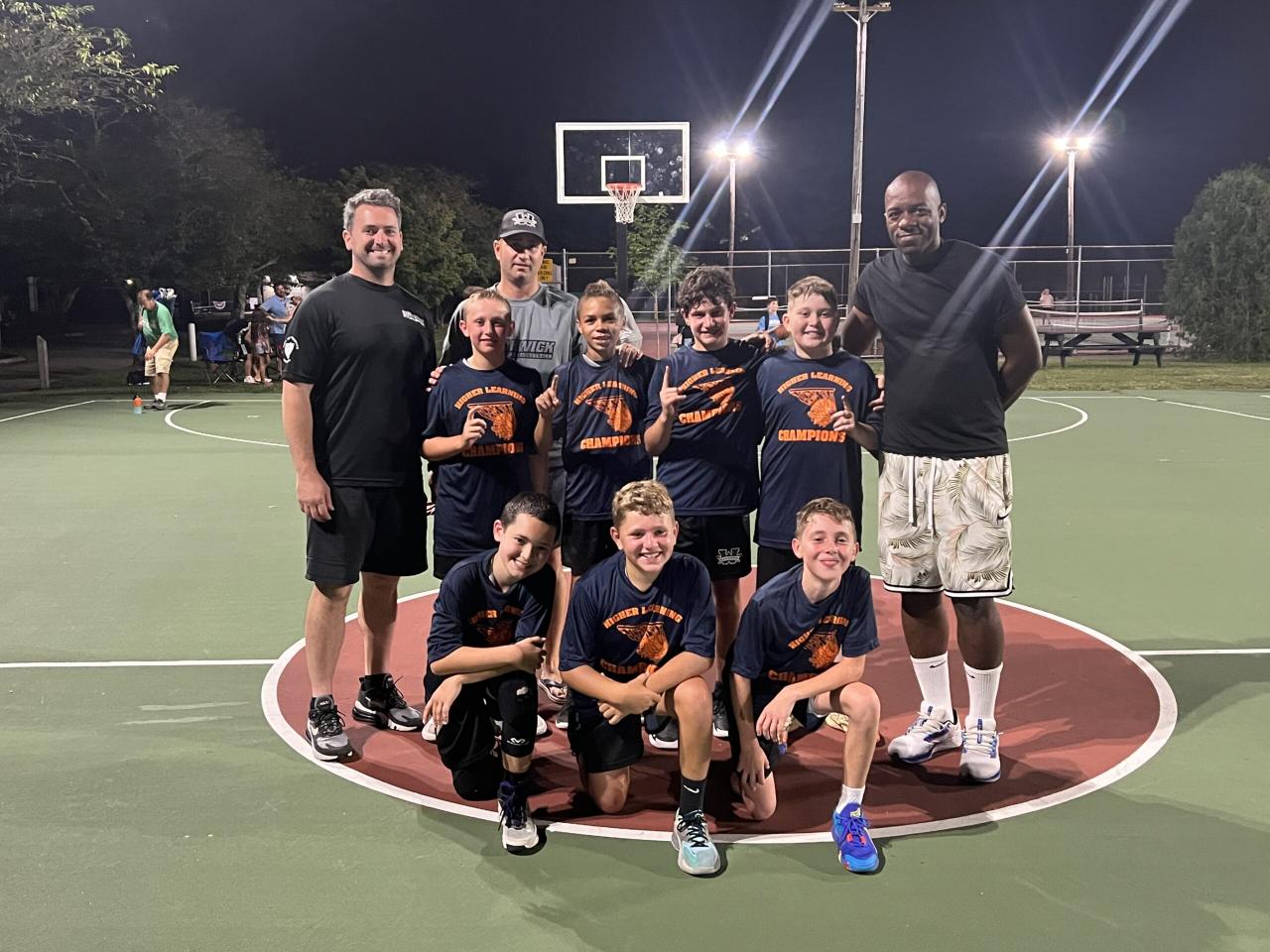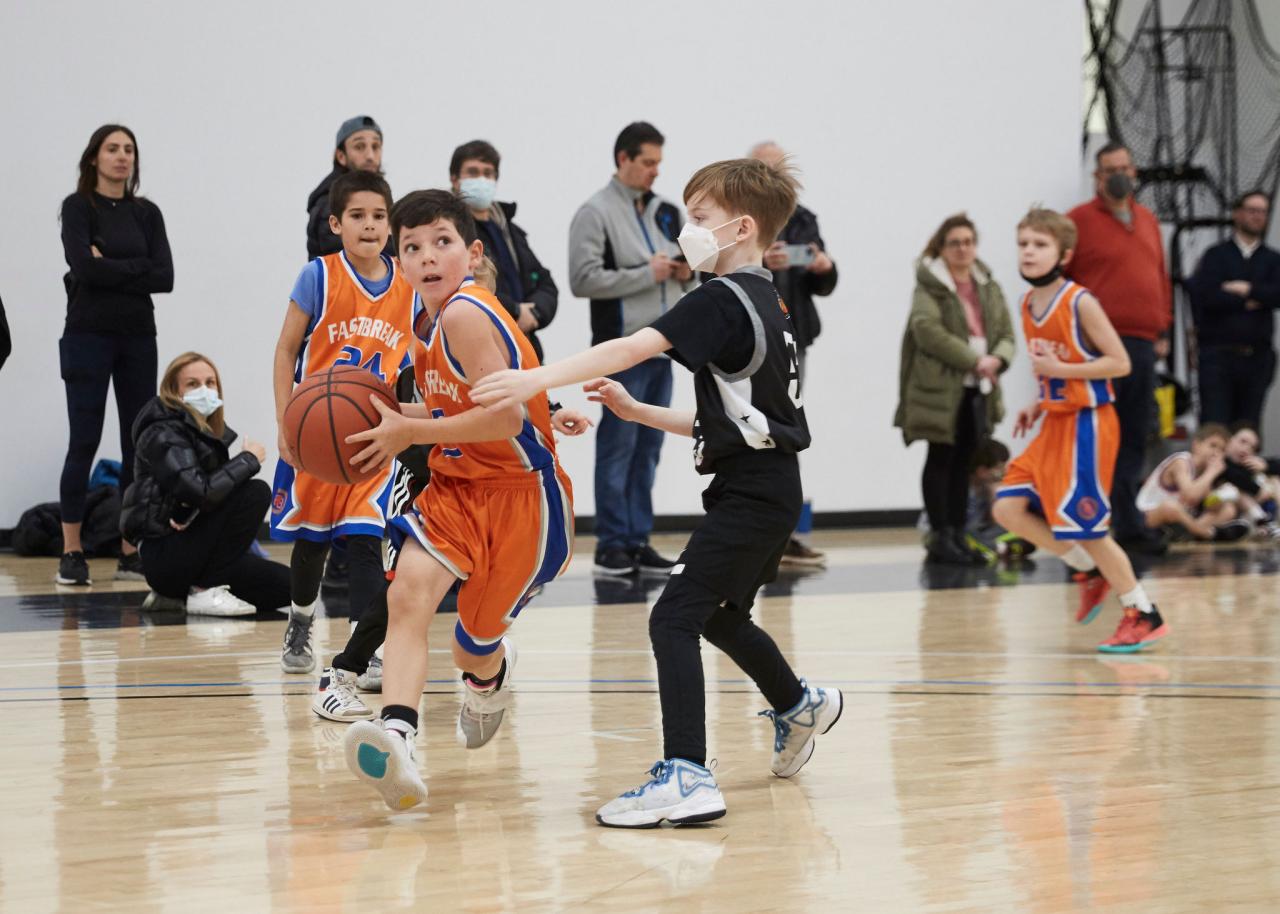9th grade travel basketball teams kissimmee and orlando – 9th Grade travel basketball teams in Kissimmee and Orlando offer young athletes a thrilling path to hone their skills and experience the competitive spirit. These teams provide a platform for growth, both on and off the court, fostering teamwork, discipline, and a love for the game. From rigorous tryouts to demanding travel schedules, the journey is demanding, yet incredibly rewarding.
Discover the leagues, costs, coaching styles, and tournament experiences that shape the lives of these dedicated young players.
This exploration delves into the vibrant world of 9th-grade travel basketball in Central Florida, examining team selection processes, financial considerations, coaching philosophies, and the unique challenges and rewards this demanding sport presents. We’ll examine the various leagues and organizations involved, offering a comprehensive overview to help parents and aspiring athletes navigate this exciting landscape.
Team Selection Process and Tryouts

Making a 9th-grade travel basketball team in Kissimmee and Orlando is a competitive but rewarding process. These teams represent a high level of play, requiring dedication, skill, and teamwork. The tryout process is designed to identify players who possess the necessary attributes to contribute to the team’s success. Coaches carefully evaluate each participant to build a roster capable of achieving its goals.The tryout process typically involves several key steps, ensuring a fair and thorough assessment of each player’s abilities.
This structured approach allows coaches to make informed decisions based on objective criteria.
Tryout Process Steps
The tryout process for 9th-grade travel basketball teams in Kissimmee and Orlando generally follows these steps:
- Registration and Information Gathering: Players register online or in person, providing information such as contact details, basketball experience, and previous team affiliations. This initial step streamlines the process and helps coaches prepare for the tryouts.
- Initial Assessment/Skills Evaluation: Coaches often start with a basic skills assessment. This might include shooting drills, ball-handling exercises, and simple passing drills. This allows for a quick overview of fundamental skills.
- Scrimmages and Game Situations: The majority of the tryout involves scrimmages, giving coaches a chance to observe players in game-like scenarios. This is where teamwork, decision-making under pressure, and overall basketball IQ are assessed.
- Individual Interviews (Optional): Some coaches may conduct brief interviews to gauge a player’s attitude, work ethic, and commitment to the team. This provides a more holistic view of the player beyond their on-court performance.
- Team Selection and Notification: After careful evaluation, coaches select players based on a combination of skill, athleticism, and teamwork. Players are then notified of their status – whether they made the team or not.
Sample Tryout Schedule
A typical tryout might follow a schedule similar to this:
| Time | Activity | Evaluation Focus |
|---|---|---|
| 8:00 AM – 8:30 AM | Registration and Warm-up | Attendance, Punctuality |
| 8:30 AM – 9:00 AM | Ball Handling Drills (Cone Dribbling, Figure-8s) | Agility, Ball Control |
| 9:00 AM – 9:45 AM | Shooting Drills (Free Throws, Jump Shots) | Accuracy, Shooting Mechanics |
| 9:45 AM – 10:30 AM | Passing Drills (Chest Passes, Bounce Passes) | Passing Accuracy, Teamwork |
| 10:30 AM – 12:00 PM | Scrimmages | Game IQ, Teamwork, Defense, Offensive Skills |
Player Selection Criteria
Coaches consider several key factors when selecting players:
- Skill Level: Fundamental skills such as shooting, ball-handling, passing, and defense are paramount. Coaches look for players who demonstrate proficiency in these areas.
- Athleticism: Physical attributes like speed, agility, jumping ability, and stamina contribute significantly to a player’s on-court performance. These traits are evaluated throughout the tryout process.
- Teamwork: Travel basketball emphasizes teamwork and collaboration. Coaches assess players’ ability to work effectively with teammates, communicate effectively, and contribute to the team’s overall success.
- Coachability: A player’s willingness to learn, accept feedback, and adapt to coaching instructions is crucial for improvement and team cohesion. This aspect is often observed during drills and scrimmages.
- Character and Attitude: Coaches often look for players who demonstrate positive attitudes, sportsmanship, and respect for teammates and coaches. This is important for building a strong team environment.
Costs and Commitment Involved

Joining a competitive travel basketball team requires a significant investment of time, energy, and financial resources. Both players and parents need to understand the commitment involved to ensure a positive and successful experience. This section provides a clear overview of the typical costs and the time demands associated with playing 9th-grade travel basketball in the Kissimmee/Orlando area.
The financial commitment for travel basketball can be substantial, encompassing various expenses that add up throughout the season. Careful budgeting and planning are crucial for families to participate effectively. The time commitment also extends beyond practices and games, involving travel, training, and other team-related activities.
Financial Breakdown
The following table Artikels the typical costs associated with playing 9th-grade travel basketball in the Kissimmee/Orlando area. Costs can vary depending on the specific team, level of competition, and tournament participation.
| Item | Cost | Notes |
|---|---|---|
| Team Registration Fee | $300 – $800 | Covers team administration, coaching fees, and some equipment. |
| Uniforms and Equipment | $200 – $400 | Includes jerseys, shorts, socks, and possibly additional gear. |
| Tournament Fees | $200 – $600 per tournament | Teams typically participate in several tournaments throughout the season. |
| Travel Expenses | Varies greatly | Includes gas, tolls, hotels (if overnight trips are required). This can be a significant expense, especially for out-of-state tournaments. |
| Coaching Fees (additional) | $0 – $200 | Some teams may have additional coaching fees outside the registration fee. |
| Personal Expenses | Varies | Food, snacks, personal gear, etc. |
Time Commitment
Participation in travel basketball demands a considerable time commitment from both players and parents. Successful participation requires dedication and a shared understanding of the necessary time investment.
Players can expect to dedicate several hours per week to practices, games, and individual training. A typical week might include 2-3 practices (2-3 hours each) and one or more games on weekends. The season typically runs from late summer/early fall to late spring, including a significant number of weekends dedicated to tournaments.
Parents also play a crucial role, providing transportation to practices and games, supporting their child’s athletic endeavors, and managing the associated logistical demands. This often involves significant time commitments, particularly during weekends when tournaments and games are scheduled.
Season Length and Tournament Participation, 9th grade travel basketball teams kissimmee and orlando
The typical season for a 9th-grade travel basketball team in Kissimmee or Orlando spans approximately 6-8 months, typically running from September to April or May. Teams usually participate in 4-8 tournaments throughout the season. These tournaments can range from local events to larger, more competitive tournaments that may involve travel to other cities or states.
The number of tournaments and the distance of travel will significantly influence the overall time and financial commitment. Teams often choose a mix of local and regional tournaments to balance competitive opportunities with manageable travel costs and time demands. For example, a team might participate in 2 local tournaments and 2 regional tournaments, each lasting a weekend.
Coaching Styles and Team Philosophies: 9th Grade Travel Basketball Teams Kissimmee And Orlando
Developing a successful 9th-grade travel basketball team in the Kissimmee and Orlando area requires a thoughtful approach to coaching style and team philosophy. The right combination can significantly impact player development and overall team performance. Understanding the prevalent styles and philosophies in the region will help players and parents make informed decisions about team selection.
Coaching styles in youth travel basketball are diverse, reflecting the varied backgrounds and coaching philosophies of the individuals leading the teams. These styles often influence the team’s overall philosophy, impacting how players develop their skills and contribute to the team’s success.
Coaching Styles in the Kissimmee/Orlando Area
Several distinct coaching styles are commonly observed among 9th-grade travel basketball teams in the Kissimmee and Orlando region. These styles often blend, but identifying their core elements can help players and parents understand what to expect.
- Player-Centered Development: This style prioritizes individual skill improvement. Coaches focus on fundamental skills, personalized training plans, and positive reinforcement. Gameplay might feature more individual opportunities to showcase skills, even if it means sacrificing some team cohesion in the short term. For example, a coach might dedicate practice time to individual shooting drills or one-on-one defensive techniques.
- System-Based Coaching: This approach emphasizes mastering a specific offensive and defensive system. Coaches focus on executing plays and strategies effectively, prioritizing team unity and discipline. Games often feature set plays and coordinated movements, potentially limiting individual improvisation. For example, the team might run a specific pick-and-roll offense or a zone defense with specific player assignments.
- Results-Oriented Coaching: This style prioritizes winning above all else. Coaches often adopt a more demanding and competitive approach, focusing on intense drills and high-pressure game situations. Player development is important but secondary to winning games. This style might involve more strenuous practices and a greater emphasis on game strategy and adjustments. For example, substitutions might be made based solely on performance and winning the current game.
Team Philosophies: Offense vs. Defense, Individual vs. Team
The emphasis on offense versus defense, and individual skill development versus team cohesion, varies significantly among teams. These philosophies directly impact how players are coached and how the team plays.
Some teams prioritize a high-scoring, fast-paced offense, emphasizing individual talent and creativity. Others might favor a strong, disciplined defense, relying on teamwork and strategic positioning to limit opponent scoring. A balanced approach, integrating both offensive and defensive skills, is also common, striving to develop well-rounded players and a cohesive team.
Comparison of Coaching Philosophies and Player Development
The table below illustrates how different coaching philosophies impact player development in various aspects.
| Coaching Philosophy | Individual Skill Development | Team Cohesion | Competitive Success | Long-Term Player Growth |
|---|---|---|---|---|
| Player-Centered | High | Moderate | Variable | High (potential for specialization) |
| System-Based | Moderate | High | Moderate to High | Moderate (strong in system-specific skills) |
| Results-Oriented | Variable (dependent on individual talent) | Moderate to High (necessitated by winning) | High | Variable (depends on coaching approach and player talent) |
Embarking on the journey of 9th-grade travel basketball in Kissimmee and Orlando is a significant commitment, demanding dedication, skill, and teamwork. While the costs and time commitment are substantial, the potential rewards – skill development, camaraderie, and unforgettable experiences – are equally significant. By understanding the various aspects explored here, players and parents can make informed decisions, ensuring a positive and enriching experience for all involved.
The road to success is paved with hard work and determination, and these teams provide the perfect environment to cultivate both.
Top FAQs
What is the typical season length?
Seasons generally run from fall to spring, lasting approximately six to eight months.
How much travel is involved?
Travel varies greatly depending on the league and team. Expect weekend tournaments within the state and possibly out-of-state trips.
Are scholarships or financial aid options available?
Some leagues or organizations may offer partial scholarships based on need. It’s best to inquire directly with the team or league.
What if my child isn’t selected for a team?
Don’t be discouraged! Focus on continued skill development through local leagues or individual training. There are many opportunities to improve and try again in the future.